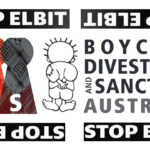Sending People to Prison for Minor Offences

In a plan unveiled last week, the Australian Bar Association called on state and territory governments to scrap or amend mandatory sentencing laws for crimes including fine default, minor assaults, driving offences and petty theft.
They believe the laws have contributed to the over-representation of Aboriginal people in prison, calling the situation a “national disgrace.”
Mandatory sentencing differs significantly between states and territories, however its impact remains the same. A mandatory sentence, passed through legislation, sets out the minimum prison term for a person convicted of a certain offence, regardless of the seriousness of the particular offence and the circumstances of the offender.
In New South Wales, recent changes mean that alcohol fuelled assaults now attract a minimum five year penalty, but the threshold is much lower in Western Australia, where fine default warrants a mandatory prison sentence in certain circumstances.
In 2014, $3622 in unpaid fines cost Aboriginal woman Ms Dhu her life. The 22-year-old had been detained in South Hedland police station for fine default. The coronial inquest that later investigated her death saw evidence that she died of pneumonia and septicaemia. Hours and hours of police footage, screened at the hearing, showed Ms Dhu doubled over and moaning. Eventually she was dragged from her cell and slung into the back of a police wagon, where a police officer told her to “shut up” moments before her death.
The Bar Association has pointed to a range of “anomalous or unjust cases” involving mandatory sentencing, including a 15-year-old Aboriginal boy sentenced under Northern Territory mandatory sentencing laws in 2000 to 20 days in detention for stealing school supplies worth less than $100. He committed suicide in custody.
Despite only making up 2.5 per cent of the general population, Indigenous Australians comprise about 28 per cent of the nation’s prison population. Of equal concern, Aboriginal incarceration has increased 57 per cent over the last 15 years, despite an overall decrease in crime.
The Bar Association believes that mandatory sentencing has played a role in creating that inequality.
What’s so bad about mandatory sentences?
The problem is that mandatory sentences tie the hands of magistrates and judges. During sentencing, they’re unable to take personal circumstances, such as Ms Dhu’s inability to repay her fines, into account. Courts are also unable to impose lesser penalties on the basis that the actual offence before them is low on the scale of seriousness.
It has been estimated that Western Australia spends about $250 million a year imprisoning Aboriginals, with each child in detention costing about $300,000 each. Mandatory sentences for crimes such as fine default have a disproportionate impact on disadvantaged people, causing unnecessary interactions with the criminal justice system.
Western Australian Attorney-General Michael Mischin told the Sydney Morning Herald that imprisonment was “a penalty of last resort”. However, he said the state had mandatory minimum prison terms “to address specific community safety issues, such as assault against police and other public officers that result in bodily harm”. It is unclear what this has to do with fine default or minor theft.
He said the government “acknowledges that, regrettably, [Indigenous people] are over-represented in the prison population, and it continues to address the issue with a variety of strategies” aimed at reducing offending.
“The re-imprisonment rate for Aboriginal children is higher than the retention rate of school. It’s just a national disgrace and we’ve got to do something about it,” the Association’s president, Patrick O’Sullivan, QC said.
“On any one night in particular, 53 per cent of youth in detention are Indigenous.”
Justice Reinvestment as a Means to Reduce Imprisonment Rates
In an interview with Sydney Criminal Lawyers® last month, Sarah Hopkins, the Managing Lawyer of Justice Projects at the Aboriginal Legal Service, talked about justice reinvestment as a tool to drive down Indigenous incarceration.
Just Reinvest NSW, the organisation she chairs, advocates shifting justice spending away from the prison system and towards programs that address the underlying factors behind criminal behaviour.
The organisation has met success in the Aboriginal community of Bourke using justice reinvestment to drive down crime over the school holidays:
“We looked at the data and the community identified that the summer period was really the biggest problem in terms of kids getting into trouble. It’s school holidays, it’s hot, and there’s a lack of structured activities.
“In January, a number of different agencies got together and created a summer holiday program that involved a whole lot of youth workers working after hours, and introducing a lot more activities for kids and young people over summer. As a result of that, key crime categories like domestic violence and malicious damage were the lowest they’d been in five years.”
Justice Reinvestment is promoted as both a tool that helps reduce crime, and saves Government from spending money in the prison system. Just think what could be done with the $300,000 Western Australia is happy to spend per child, if reinvested back into similar community interventions.
Sadly, Federal Justice Minister Michael Keenan recently rejected calls from the Australian Red Cross to implement a justice reinvestment program, reiterating the disproven view that imprisonment is an effective means of crime prevention.
Until the views of Keenan and others change, it seems we’re destined to see more tragic deaths like Ms Dhu.






